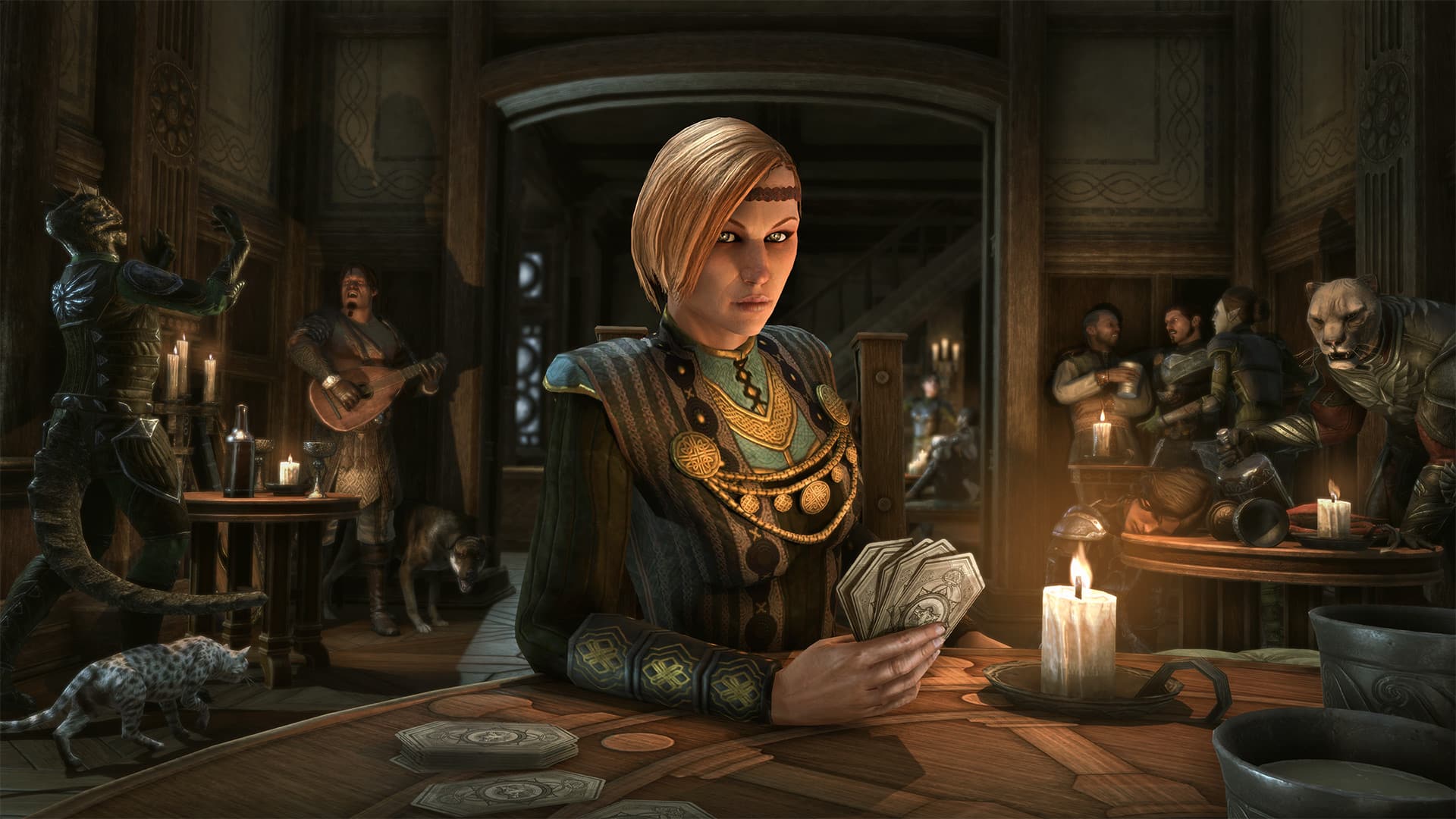In the fast-paced world of video game development, few studios carry the same weight and expectations as Bethesda Game Studios, renowned for their sprawling and immersive RPGs that have set industry benchmarks. However, this high bar comes with the pressure to deliver superior content within reasonable timelines, prompting Todd Howard, the studio’s iconic figure, to share insights on their current mission: enhancing productivity while maintaining the exceptional quality fans have come to love.

Following the launch of Starfield in September, Bethesda has shifted focus to developing The Elder Scrolls 6, a title announced back in 2018 that currently lacks a release date, suggesting that fans may have to wait several years to dive into the next installment of this beloved franchise. This situation has sparked broader conversations about the production timelines at Bethesda, as Howard candidly discussed his passion for game creation in an interview with Kinda Funny Games, stating, ‘I love making games, and if I wasn’t creating them, I’d be playing them.’ This profound commitment is a driving force behind the studio’s pursuit of solutions to shorten the wait times between their game releases.

Howard acknowledged the lengthy development cycles that are characteristic of their projects, highlighting the studio’s unwavering dedication to quality by noting, ‘You know, they do take a long time, and so I think one of the things we’re focused on here is obviously making sure they’re of the highest quality, but also finding ways to increase our output, because we don’t want to wait that long either, right.’ His remarks illustrate the delicate balancing act of striving for more frequent releases while upholding the high standards that Bethesda is known for.

The conversation surrounding Bethesda’s output isn’t solely focused on their major titles.
The studio has also been exploring new strategies to keep fans interested. The success of the Amazon Fallout TV series has propelled the brand to new heights of popularity, and Bethesda has reacted by incorporating new material into Fallout 76, including the impending Skyline Valley map addition. This shows a multi-faceted strategy to the property, considering numerous platforms and formats to keep the world alive and prospering.
Despite the enthusiasm about new material, the community has highlighted worries about the possibility for a deterioration in quality with more production. Comments from fans on forums reveal a combination of eagerness and mistrust. Some express enthusiasm for potential collaborations, such as the idea of Obsidian Entertainment working on another Fallout game, while others worry about the studio’s present course and management. The feeling is reflected by a user who commented, “Shouldn’t say no when Obsidian offered to do a new Fallout and TES singleplayer game then, they care more about their online MMO money makers now than SP, and who listens to Todd anymore lol.”
The discussion of external partnerships is not new to Bethesda.
Howard expressed that the studio has always embraced such discussions, and the ongoing relationship with Obsidian is particularly intriguing now that both studios are part of the Microsoft family. This partnership could pave the way for exciting collaborative efforts and potentially faster production timelines. Howard praised Obsidian’s remarkable work on Fallout: New Vegas, emphasizing its significance to both Bethesda and the gaming community.
Bethesda’s devotion to quality was further proved with the latest next-gen update for Fallout 4, which was published for Xbox Series X/S and PS5. This update, coupled with the planned DLC for Fallout 76, suggests that Bethesda is not simply focused on new releases but also on sustaining and expanding the experiences of older games.
As Bethesda navigates its strategies and decisions, the gaming community will be closely watching to see how the studio balances fan expectations with the ambition to increase production. The challenge for Todd Howard, who has no plans to step down, lies in harmonizing the science of production efficiency with the artistry of game design. Moreover, how Bethesda succeeds in this endeavor could set a new benchmark for the entire gaming industry.
Exploring impact of collaboration on Bethesda’s future.
The gaming ecosystem is one that feeds on the symbiotic connection between creators and their fans. It’s a ballet of give and take, where feedback loops may dramatically impact the course of a game’s development and, ultimately, its success.
The prospect of collaboration, especially with teams like Obsidian Entertainment, excites fans eager for new experiences. The acclaim for Fallout: New Vegas has sparked hopes for a sequel or a similar collaboration that could breathe fresh life into classic franchises. Todd Howard’s commendation of Obsidian’s ‘amazing work’ on New Vegas shines as a beacon of hope for those longing for a New Vegas 2 or another spin-off while they await significant new releases.
Community input has always been a cornerstone of Bethesda’s development approach. The company has showed a willingness to adapt and develop depending on the comments and ideas of its player base. This is visible in the constant upgrades and additions for Fallout 76, such as the Skyline Valley map extension. Such efforts illustrate Bethesda’s dedication to not just sustaining but enhancing its current titles.
The community’s voice is not without its criticisms.
Given the studio’s mistake and technical deficiencies of the past, there is cause to be worried about a probable reduction in quality owing to rising output. Remarks by fans and the mood on the boards reflect a combination of cynicism and eagerness. The staff at Bethesda truly feels the impulse to concentrate on the “highest quality” according to Todd Howard, but there is worry that this may be sacrificed for increased productivity.
A very significant technique to soothe these fears may be to integrate community involvement into the planning. Bethesda could guarantee that their games are well appreciated by their audience and continue to match the high level of quality that is anticipated from them by being actively connected with the player base and taking into account their suggestions. This strategy may result providing smoother releases, given the early notice of difficulties in the development cycle.
It also offers up some exciting opportunities for cooperation with other studios within the Microsoft umbrella. With Bethesda and Obsidian now in the same family, the door is open to future collaborations, which might produce speedier production timetables and new creative approaches. That type of arrangement might also ease the burden off Bethesda to keep generating more and enable them to concentrate on quality while still managing to fulfill the thirst for more stuff.
Bethesda’s commitment to its existing games is underscored by the recent next-gen update for Fallout 4, demonstrating the studio’s dedication to breathing new life into its titles long after their initial release. This commitment not only reassures players of the longevity and playability of their games but may also serve as a guiding principle as Bethesda seeks to elevate its production standards.
By ensuring that each game is backed by a robust post-launch support plan, Bethesda has managed to maintain community engagement and a steady flow of content. This approach will be crucial as the studio continues to tackle the challenge of meeting high fan expectations. The willingness to listen to community feedback and collaborate will be essential for shaping Bethesda’s future and retaining its status in the industry, as Todd Howard leads the charge with a clear vision of harmony between production efficiency and creative artistry.
Moving forward, Bethesda will need to harness all available cooperation and insights to ensure its success. With a wealth of opportunities on the horizon, this is an exhilarating period for both the studio and its dedicated supporters. Here’s to an exciting next chapter for Bethesda!
Related posts:
Todd Howard says Bethesda is now focused on “finding ways to increase our output”
Todd Howard says Bethesda is focused on finding ways to increase its output
Todd Howard says Bethesda is focused on finding ways to increase its output





